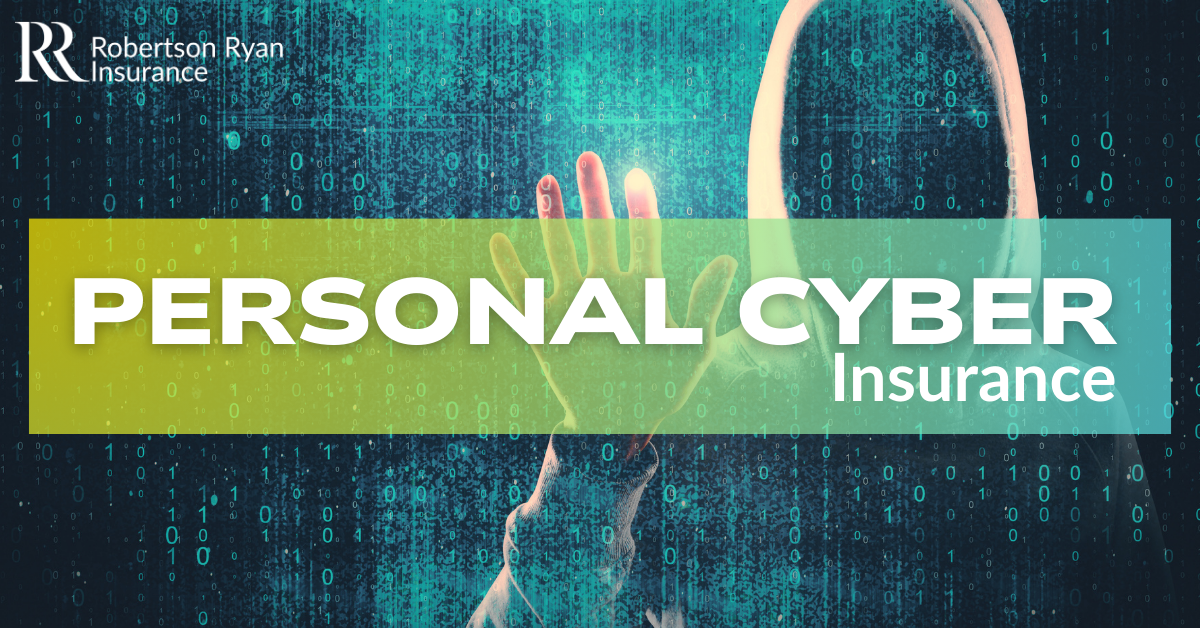Identity Theft & Cybercrime: How to Stay One Step Ahead
September 9, 2025

In today’s digital world, personal information can be as valuable as currency, and just as vulnerable. Whether it’s a credit card skimmed at a gas pump, a phishing email that looks like it’s from your bank, or a scammer impersonating someone on social media, identity theft and cybercrime are on the rise and evolving rapidly.
According to Javelin Strategy & Research, identity fraud cost Americans $43 billion in 2023 alone, impacting nearly 15 million people. And as our homes become more connected with smart devices, our digital risk continues to grow.
What can you do to protect yourself and what insurance coverage is available that may help?
How Identity Theft Happens
Cybercriminals can steal personal information in many ways:
- Phishing Emails and Texts: Clicking on a link from what looks like a trusted source can install malware or lead to fake websites that capture your login credentials.
- Data Breaches: Hackers target large organizations and retail systems to access consumer records.
- Synthetic Identity Theft: Criminals mix real and fake details – like your Social Security number with a phony name and birthdate – to create an entirely new identity.
- Offline Methods: Mail theft, dumpster diving, or even handing over personal details for something as innocent-looking as a fake petition.
Technology, including AI, has made these scams even more convincing. Fraudsters can now mimic voices or generate realistic emails that are difficult to distinguish from the real thing.
Warning Signs You May Be a Victim
Here are some red flags that should prompt further investigation:
- Unfamiliar charges on bank or credit card statements
- Bills or medical claims for services you didn’t receive
- Missing statements or unexpected address changes
- IRS notifications about unfiled or duplicate tax returns
- New accounts on your credit report that you didn’t open
How to Reduce Your Risk
You don’t need to be tech-savvy to boost your security. Here are practical steps you can take:
Protect Your Paper Trail
- Shred sensitive documents before tossing them
- Go paperless for statements and bills
- Keep personal documents, like your Social Security card, in a safe place, not in your wallet or car
Strengthen Digital Security
- Use unique passwords for different accounts
- Enable multifactor authentication where possible
- Avoid public Wi-Fi for sensitive transactions
- Keep devices protected with up-to-date security software
Monitor Your Credit
- Check your credit reports regularly at AnnualCreditReport.com
- Set up alerts with your financial institutions for any account changes
- Consider placing a credit freeze or fraud alert with the three major bureaus
Think Before You Share
- Be cautious with personal details on social media
- Avoid clicking links in unsolicited texts or emails
- Never share personal info with AI tools or unfamiliar platforms
For more tips, visit the Federal Trade Commission’s IdentityTheft.gov.
What is Personal Cyber Insurance?
Despite the rising threat of cybercrime, many households remain uninsured against digital risks. According to the Insurance Information Institute and HSB, more than half of consumers don’t fully understand the value of personal cyber insurance, even though many have already experienced some form of cybercrime.
Personal cyber insurance is often available as an endorsement to a homeowners policy and can provide financial support for:
- Online fraud or scams
- Identity recovery services
- Ransomware/extortion incidents
- Data loss or damage to personal devices
- Cyberbullying and related legal or counseling expenses
Coverage options vary by insurer, and availability may depend on your existing homeowners policy. While pricing and features differ, some insurers may offer coverage for as little as $100 per year, depending on the policy.
We’re Here to Help
As our lives become increasingly digital, the need for cyber protection has never been clearer. While cybersecurity habits are the first line of defense, insurance can provide peace of mind and support if something goes wrong.
If you’re curious about personal cyber coverage, or simply want to better understand your options, reach out to your Robertson Ryan Insurance Agent to help you make sense of it all. Or contact us today to learn more or discuss your coverage options from one of our Independent Insurance Agents.
*Please note that we rely on independent sources, and recommend conducting further research or to seek guidance from a qualified industry professional, legal counsel, or licensed insurance agent as appropriate for your needs. These blog posts are intended for general informational purposes only.